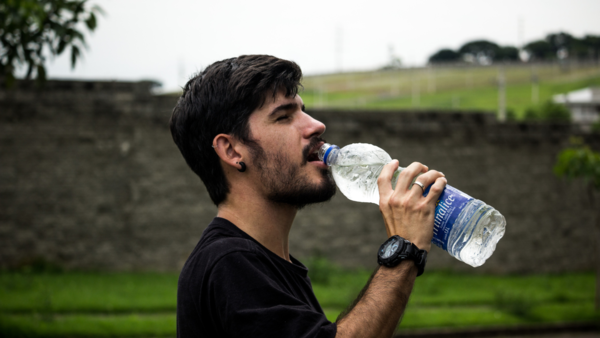- News
- lifestyle
- health-fitness
- diet
- How much water should you drink in summer to feel hydrated in summer
Trending
How much water should you drink in summer to feel hydrated in summer
Understanding the importance of hydration and electrolytes for maintaining health during summer months is crucial. Dehydration can lead to cognitive imbalance, poor physical resilience, and other health issues, making a hydration guide essential.
Science of hydration
Hydration and electrolytes are key factors in maintaining desirable body temperatures during these summer months. Miss out on these elements, and your health will spiral down—cognitive imbalance, poor physical resilience, low-functioning kidneys, lack of nutrient absorption, degenerating joints, and the wellness catastrophes go on and on.
As a longevity physician, my experiences with high-performance athletes and executives continue to upgrade my knowledge base about the importance of health, recovery, and performance.Keeping this larger intent in mind, I’ve created this hydration guide for the warm summer months.
You want to be considerably clear of dehydration. Firstly, understand how water and electrolytes fuel your body with much-needed internal power. These realizations will themselves straighten your hydration habits during these months of scorching heat. Secondly, discover the amount of water your body needs based on your physical activity levels.
Why water and electrolytes are your body’s best friends for summer months
From thermoregulation to the effective elimination of metabolic waste, these ingredients will strengthen your internal systems to adjust to extreme conditions of heat.
Electrolytes like calcium, sodium, and magnesium, among several more, stimulate the transmission of electric pulses that facilitate nerve activities and necessary muscle contractions.
They sustain your natural muscular strength and neurological functions, ensuring your mobility and cognitive capabilities aren’t disrupted.
Paired with sufficient water intake, your body prevents hyperthermia in cases of physical exhaustion in high-temperature conditions.
Fluids like water are the body’s go-to medium for transporting essential hormones, vitamins, minerals, and oxygen to your cells.

According to Dr. Marcus Ranney, India’s Leading Longevity Physician, Founder and CEO- Human Edge, “Consistent water intake ensures that metabolic waste doesn’t rot in your intestines. Instead, it flushes out the toxins and clears your digestive tract. This positively affects your brain, cardiovascular, and pulmonary health.”
Above all, electrolytes are the driving components that regulate the fluid balance between cells and the larger part of this picture—your organs. Achieving this ideal acid-base balance guarantees your enzymatic and metabolic activities are in favour of longevity.
Not to forget, water and electrolytes also promote the maintenance of blood volume and pressure, biochemical reactions within cells, and a whole lot of intricate bodily processes.
Sources of electrolytes
You want to add these ingredients across your dietary palette to keep your electrolyte consumption in the above-average range.
1. Sodium: Soups, salad dressings, condiments, and pickles
2. Potassium: Bananas, oranges, spinach, potatoes, root vegetables, and vine fruits
3. Calcium: Organic dairy products, almonds, beans, lentils, leafy greens and fortified foods
4. Magnesium: Nuts, seeds, whole grains, avocado, and green vegetables like broccoli and okra
Remember that sodium may be labelled the ‘silent killer’, but if you underscore the importance of moderation—you’re in safe hands.
How much water should you drink in summer?
The answer to this varies based on your activity levels, nearby climate conditions, and your body weight. Simply put, more physical activity means more water loss, requiring higher intake. Similarly, hotter climates increase sweat production, necessitating more fluids. And those with a higher body weight will also need more water to stay hydrated.
Water Intake
Men: 3.7-4 litres per day, including all fluids.
Women: 2.7-3 litres per day, including all fluids.
Additionally, if you indulge in moderate physical activity, add an extra 0.5-1 litre of water per hour of exercise. For those with higher than usual activity levels, opt for 1-1.5 litres of extra water per hour of intense exercise.
The takeaway
Your hydration and electrolyte ratios will determine your overall health and performance levels during the summers. Especially in India, understanding the science of hydration and following practical water intake recommendations are among the only ways to keep you functioning optimally. After all, if a longer lifespan is your primary health objective, you can’t fall victim to the root cause of lower longevity rates.
Say goodbye to belly fat: Easy hacks you can do at home!
End of Article
FOLLOW US ON SOCIAL MEDIA









